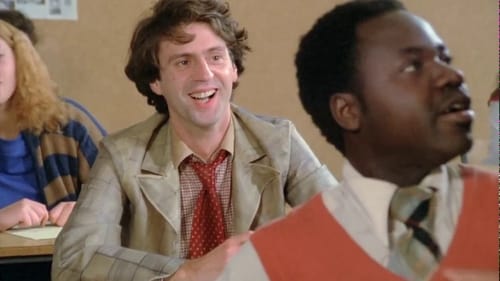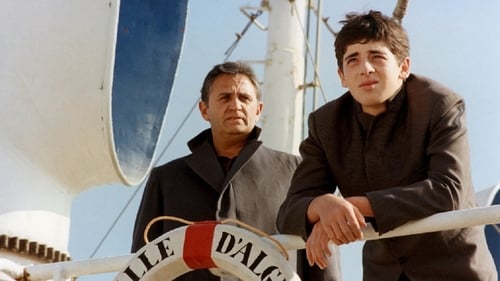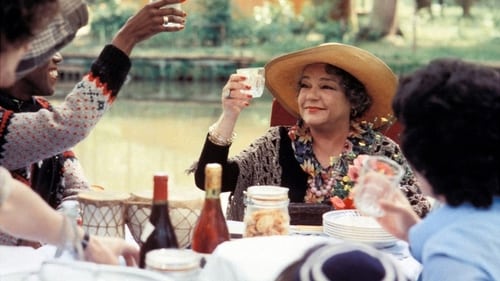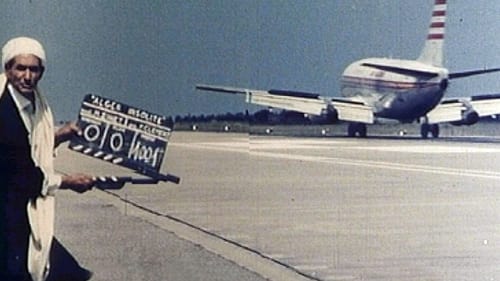Mohamed Zinet
Рождение : 1932-01-16, Alger, Algérie
Смерть : 1995-04-10

Mustapha le terroriste
Директор школы хочет ввести новую систему обучения и ужесточить правила поведения на уроках. В свою очередь «детки» дают жару и строят всяческие козни не только администрации школы, но и друг другу! Ведь непросто заниматься воспитанием «высокосознательных» учеников, которые протягивают электричество к дверным ручкам, активно занимаются сексом на уроках химии, притаскивают на занятия домашних животных и предпочитают беременность от несовершеннолетних отцов — постижению скучных наук!

Le porteur
A shady Parisian tries to take advantage of a family of French-descended Algerians forced to move to France.


Kadir Youssef
Мадам Роза -еврейка, пережившая Освенцим, сама проститутка в прошлом, становится "приемной матерью" для детей других проституток. Момо - старший среди детей и её любимчик. Она пытается воспитать этого алжирского мальчика в духе мусульманской культуры. Момо распрашивает Розу о своих родителях но она всегда уходит от прямого ответа. С возрастом Розе все труднее становится управляться с детьми и Момо вынужден ей помогать, потому что денег постоянно не хватает. Однажды он даже пытается заработать немного денег на улице как кукольник. Со временем он превращается в очаровательного юношу, и мадам Роза, находясь в постоянной тревоге за его будушее, берет с него слово, что он никогда не станет на путь проституции и не будет принуждать к этому других людей. Момо и Надина, работающая редактором на киностудии, становятся друзьями, а затем в его жизни появлятся и его отец. Мадам Роза боится, что проведет конец своих днеи в доме для престарелых. и Момо понимает, что должен что-то делать...

Writer
Originally commissioned by the city of Algiers to promote tourism, Mohamed Zinet’s Tahia ya Didou blends documentary with fiction to create a poetic, acerbic and rapturous portrait of the director’s native city. The camera travels freely, through the port, market, streets and cafés, capturing everyday people, some of whom recur frequently enough to seem like protagonists. The nominal plotline follows a French tourist couple’s leisurely visit to the city, the man having previously served in the army during the Algerian war. As they walk around, his comments betray his mindset’s racist colonial prejudices, while his wife reiterates asinine clichés. Their unhurried wandering is interrupted when he comes across a blind man and realises that he tortured him during his army service. The film is punctuated with punchy sequences that show a poet named Momo delivering verse as an elegy for Algiers.

Hassan
Originally commissioned by the city of Algiers to promote tourism, Mohamed Zinet’s Tahia ya Didou blends documentary with fiction to create a poetic, acerbic and rapturous portrait of the director’s native city. The camera travels freely, through the port, market, streets and cafés, capturing everyday people, some of whom recur frequently enough to seem like protagonists. The nominal plotline follows a French tourist couple’s leisurely visit to the city, the man having previously served in the army during the Algerian war. As they walk around, his comments betray his mindset’s racist colonial prejudices, while his wife reiterates asinine clichés. Their unhurried wandering is interrupted when he comes across a blind man and realises that he tortured him during his army service. The film is punctuated with punchy sequences that show a poet named Momo delivering verse as an elegy for Algiers.

Director
Originally commissioned by the city of Algiers to promote tourism, Mohamed Zinet’s Tahia ya Didou blends documentary with fiction to create a poetic, acerbic and rapturous portrait of the director’s native city. The camera travels freely, through the port, market, streets and cafés, capturing everyday people, some of whom recur frequently enough to seem like protagonists. The nominal plotline follows a French tourist couple’s leisurely visit to the city, the man having previously served in the army during the Algerian war. As they walk around, his comments betray his mindset’s racist colonial prejudices, while his wife reiterates asinine clichés. Their unhurried wandering is interrupted when he comes across a blind man and realises that he tortured him during his army service. The film is punctuated with punchy sequences that show a poet named Momo delivering verse as an elegy for Algiers.

“Monangambeee” was a rallying cry used by activists during Angola’s anti-colonial liberation struggle to gather villages together. The film of the same title addresses Portuguese arrogance towards Angolan culture. Sarah Maldoror draws on a novella by José Luandino Vieira, the story of a political prisoner, to make a film about humiliation, solidarity and resistance.






